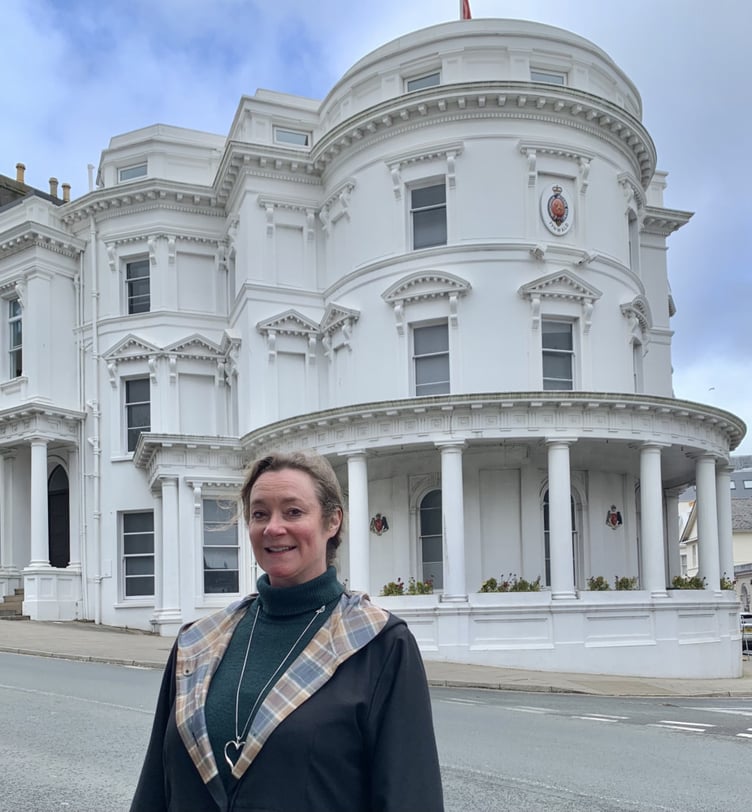With the General Election approaching on September 23, Rebecca Brahde looks at what the House of Keys and Tynwald do and the role of MHKs.
An MHK (Member of the House of Keys) is elected every five years by the public to represent the people’s interests in both Tynwald and the House of Keys.
Current MHK Daphne Caine described the role.
She said: ’Primarily it is public service, assisting people with local constituency issues.
’It is also parliamentary business including having policy input, drafting and protecting new laws, and bringing forward legislation every year.’
There are 24 MHKs, two for each of the 12 constituencies.
An MHK typically represents about 3,500 people. Most MHKs are not affiliated to any political party and are therefore independents.
Their daily realities vary, former MHK David North said.
’It was different every day. You had a timetable which was on Tuesdays Keys met, other than the third Tuesday which was Tynwald, when the Legislative Council and Keys came together.’
Former MHK David Cretney added: ’Tynwald was about policy and those kinds of issues, the House of Keys is one of the most important features and privileged parts of the role as you make the laws of the land.’
As part of making the legislation, Mrs Caine emphasises how much research, reading and attention to detail goes into the process.
’There is a huge amount of reading of the legislation, but you have to be reading it really carefully, even a colon in the wrong place can alter the meaning of the law that is being written.’
In both Tynwald and the House of Keys, according to Daphne Caine: ’The culture has changed for the better over the past few years, with the influx of 12 out of 24 House of Keys members and with a significant increase of women in parliament.
Generally just over a third are women now, including Legislative Council members.’
Mr North said that as an elected MHK, there are three political avenues.
’If you get elected you can be one or all of three things. You can be a constituency MHK representing your constituents, you can be a political member of department or become a minister of state and you can be taking legislation through the House of Keys.’
With the additional roles that an MHK can have, their responsibilities and day to day tasks will inevitably vary, however, an important part of the role is always to communicate with the public and respond to correspondents.
Mrs Caine said: ’In the Isle of Man I think we are very accessible to our constituents and to any correspondents. I’ve had letters from all over the island, some in support of what I said, and some very critical of what I said.
’Everyone has got a view on the national political issues and I try to respond as promptly as possible to all of them.’
She added regarding Covid restrictions and opposing views from constituents.
’Every time the border restrictions are changed, relaxed or imposed, we get diametrically opposed opinions from one stretch of constituents saying don’t do this, this is terrible, and then we get another stretch of constituents saying, this is the right thing for the Isle of Man.
’So there are very strong opinions on both sides of the Covid regulations and border restrictions that we cannot please all of the people all the time.’
MHKs can be contacted by correspondents at any time. Their phone numbers are listed on their own page in the telephone directory.
’It’s certainly not a 40-hour week job, you have to be prepared to be available at all times,’ said Mr Cretney.
For MHKs the nature of communicating with the public has shifted with the advent of social media.
Mr North said: ’The communication has changed dramatically. If I were standing for Keys now the first question to ask anybody is are you on social media? And if they are not today then they are out of it.’
Yet social media has its negative aspects
Mr Cretney said: ’When I saw people anonymously attacking me, there weren’t many, but those who did, I wish they would contact me directly so we could have a conversation.
’I welcome debate and discussion, but to be in a position where you don’t know who it is that is criticising you so you can’t engage in a proper discussion was always a bit frustrating.’
All three of the interviewees consider their time as MHKs as a privilege and express a great amount of dedication to the role.
Mrs Caine sums this up well: ’While it is an honour and privilege to be elected for this position, at all times it is a very demanding role, and in order to perform the best you can, it takes a huge amount of time and diligence.’

.png?width=209&height=140&crop=209:145,smart&quality=75)
-(1).jpeg?width=209&height=140&crop=209:145,smart&quality=75)

